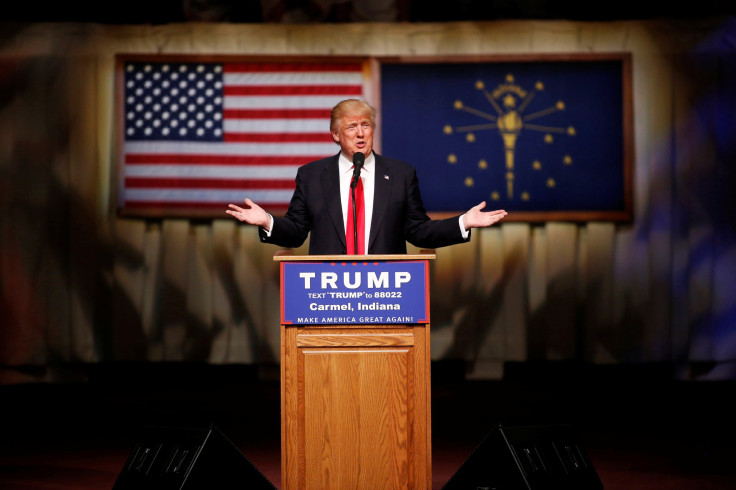The Republican Party Begins Lining Up Behind Donald Trump, With Exceptions

This is it. Donald Trump is now the leader of the Republican Party — whether GOP elites like it or not.
The only question is whether those elites will remain loyal to their party or publicly renounce its chief. So far, most of them have chosen the former path.
Reince Priebus, chairman of the Republican National Committee, is now in the pro-Trump camp. He has long insisted that the party would eventually unite behind the primary winner, no matter who it turned out to be; on Tuesday evening he proved true to his word.
.@realDonaldTrump will be presumptive @GOP nominee, we all need to unite and focus on defeating @HillaryClinton #NeverClinton
— Reince Priebus (@Reince) May 4, 2016
Another longtime Republican operative, Ed Rollins, has signed on as a strategist for Great America PAC, a pro-Trump super PAC. Rollins was the campaign manager for President Ronald Reagan's 1984 re-election.
Other prominent figures in the party, while considerably less enthusiastic about Trump, have nonetheless pledged their support. Ari Fleischer, the onetime press secretary for President George W. Bush, chimed in:
There's a lot about Donald Trump that I don't like, but I'll vote for Trump over Hillary any day.
— Ari Fleischer (@AriFleischer) May 4, 2016
Similarly, Grover Norquist, head of the powerful conservative lobbying group Americans for Tax Reform, also said he'd support Trump — considering the alternative.
Ok. So the choice is between a fireman with modest preparation and an serial arsonist whom married into the job.
— Grover Norquist (@GroverNorquist) May 4, 2016
There have been a handful of defections. Republican strategist Mark Salter, a former senior advisor for Sen. John McCain's 2008 presidential campaign, and Red State contributing editor Ben Howe both tweeted the phrase "I'm With Her," used by supporters of Hillary Clinton. Others have remained silent on whether they will support Trump, withholding their endorsement without repudiating him outright.
Sen. Lindsey Graham, R-S.C., who dropped out of the primaries early on and later endorsed Ted Cruz of Texas, thanked Cruz Tuesday night for offering "Republicans an alternative to Donald Trump." The influential conservative group Club for Growth PAC, which made an unprecedented primary endorsement of Cruz in late March, also thanked him for his campaign in a Tuesday statement. Neither Graham nor the Club for Growth have yet said whether they will back Trump.
The chairwoman of the Our Principles PAC, which spent more than $2 million in anti-Trump ads in Indiana, was adamant in a statement released Tuesday night. "We continue to give voice to the belief of so many Republicans that Trump is not a conservative, does not represent the values of the Republican Party, cannot beat Hillary Clinton, and is simply unfit to be president of the United States," said Katie Packer.
It's still unclear whether Mitt Romney, the party's previous nominee, who has spoken out against Trump, will now back him. Sen. McCain, who echoed former Gov. Romney's criticism of the New York billionaire, has said he would support the eventual GOP nominee.
The last Republican to win the White House, George W. Bush, says he's staying out of it. A spokesman said Wednesday that the former president — the brother of the Trump-labeled “low-energy” candidate Jeb Bush — “does not plan to participate in or comment on” the 2016 race.
George H.W. Bush is also on the sidelines now, his spokesman told The Texas Tribune. “At age 91, President Bush is retired from politics.”
© Copyright IBTimes 2025. All rights reserved.






















